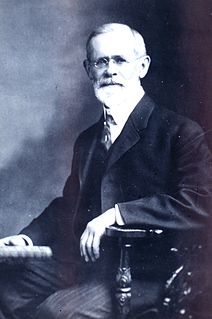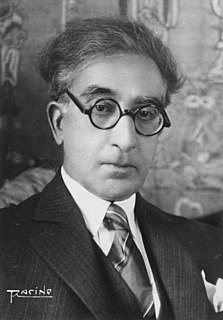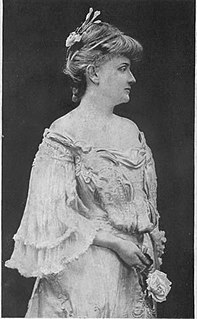A Quote by John Dewey
Every great advance in science has issued from a new audacity of imagination. What are now working conceptions, employed as a matter of course because they have withstood the tests of experiment and have emerged triumphant, were once speculative hypotheses.
Related Quotes
[Modern science] passed through a long period of uncertainty and inconclusive experiment, but as the instrumental aids to research improved, and the results of observation accumulated, phantoms of the imagination were exorcised, idols of the cave were shattered, trustworthy materials were obtained for logical treatment, and hypotheses by long and careful trial were converted into theories.
Science is a human activity, and the best way to understand it is to understand the individual human beings who practise it. Science is an art form and not a philosophical method. The great advances in science usually result from new tools rather than from new doctrines. ... Every time we introduce a new tool, it always leads to new and unexpected discoveries, because Nature's imagination is richer than ours.
The rules and principles of case law have never been treated as final truths but as working hypotheses, continually retested in those great laboratories of the law, the courts of justice. Every new case is an experiment, and if the accepted rule which seems applicable yields a result which is felt to be unjust, the rule is reconsidered.
There are many hypotheses in physics of almost comparable brillance and elegance that have been rejected because they did not survive such a confrontation with experiment. In my view, the human condition would be greatly improved if such confrontations and willingness to reject hypotheses were a regular part of our social, political, economic, religious and cultural lives.
Natural science is founded on minute critical views of the general order of events taking place upon our globe, corrected, enlarged, or exalted by experiments, in which the agents concerned are placed under new circumstances, and their diversified properties separately examined. The body of natural science, then, consists of facts; is analogy,-the relation of resemblance of facts by which its different parts are connected, arranged, and employed, either for popular use, or for new speculative improvements.
Authors are far closer to the truths enfolded in mystery than ordinary people, because of that very audacity of imagination which irritates their plodding critics. As only those who dare to make mistakes succeed greatly, only those who shake free the wings of their imagination brush, once in a way, the secrets of the great pale world. If such writers go wrong, it is not for the mere brains to tell them so
The principle of science, the definition, almost, is the following: The test of all knowledge is experiment. Experiment is the sole judge of scientific "truth." But what is the source of knowledge? Where do the laws that are to be tested come from? Experiment, itself, helps to produce these laws, in the sense that it gives us hints. But also needed is imagination to create from these hints the great generalizations--to guess at the wonderful, simple, but very strange patterns beneath them all, and then to experiment to check again whether we have made the right guess.
To learn anything other than the stuff you find in books, you need to be able to experiment, to make mistakes, to accept feedback, and to try again. It doesn't matter whether you are learning to ride a bike or starting a new career, the cycle of experiment, feedback, and new experiment is always there.








































